Hair health is a significant concern for many, and vitamins play a crucial role in maintaining and promoting hair growth. A balanced diet rich in essential vitamins can lead to healthier, stronger hair, while deficiencies may result in hair loss or other hair-related issues. This comprehensive guide delves into the best vitamins for hair growth, the foods that are rich in these vitamins, the benefits of supplements, and how to choose the right vitamin for your hair.
Essential Vitamins for Hair Health
Vitamin A
Benefits for Hair: Vitamin A is crucial for cell growth, including hair cells. It helps the scalp produce sebum, an oily substance that moisturizes the scalp and keeps hair healthy. Sebum not only maintains the moisture balance of the scalp but also prevents hair from becoming dry and brittle, reducing the risk of breakage. However, it is important to consume Vitamin A in moderation, as excessive amounts can lead to hair loss by causing hair follicles to enter the shedding phase prematurely.
B-Vitamins
Benefits for Hair: B-vitamins, especially Biotin (Vitamin B7), play a significant role in maintaining hair health. Biotin is essential for the production of keratin, a protein that makes up the structure of hair. A deficiency in biotin can lead to thinning hair and hair loss. Other B-vitamins like B12, B6, and Niacin (B3) are crucial for the formation of red blood cells, which carry oxygen and essential nutrients to the scalp and hair follicles. This nourishment is vital for promoting hair growth and maintaining healthy hair. These vitamins also help improve blood circulation to the scalp, ensuring that hair follicles receive adequate nutrients and oxygen.
Vitamin C
Benefits for Hair: Vitamin C is a powerful antioxidant that protects hair from oxidative stress caused by free radicals. Free radicals can damage hair follicles, leading to hair loss and weakened hair. Vitamin C also plays a key role in collagen production. Collagen is a protein that strengthens hair, preventing it from becoming brittle and breaking. Additionally, Vitamin C improves the absorption of iron, an essential mineral for hair growth. Iron deficiency can lead to anemia, which is a common cause of hair loss.
Vitamin D
Benefits for Hair: Vitamin D is essential for hair follicle cycling, which includes the growth and shedding phases of hair. Researchers have linked a deficiency in Vitamin D to alopecia, a condition that causes hair to fall out in small patches. Ensuring adequate Vitamin D levels helps maintain regular hair growth cycles, preventing hair loss and promoting new hair growth. Vitamin D also supports the health of existing hair follicles, ensuring they remain functional and productive.
Vitamin E
Benefits for Hair: Vitamin E is another potent antioxidant that helps protect hair from oxidative stress. It plays a critical role in maintaining a healthy scalp by reducing stress and protecting the lipid layers of the scalp. This vitamin also enhances blood circulation to the scalp, ensuring hair follicles receive sufficient nutrients and oxygen for optimal growth. By maintaining a healthy scalp environment, Vitamin E promotes stronger, healthier hair growth and prevents premature hair loss.
Check out our other blog: Step by Step Hair Transplantation Travel Guide in Turkey
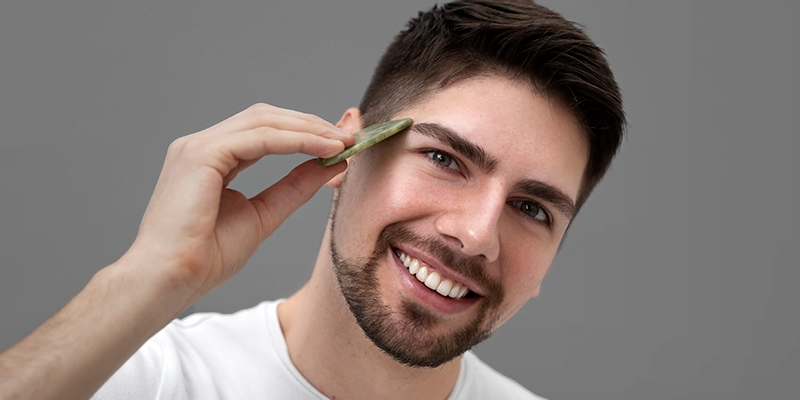
Foods Rich in Hair Growth Vitamins
Carrots and Sweet Potatoes
Benefits for Hair: Carrots and sweet potatoes are high in beta-carotene, which the body converts into Vitamin A. Vitamin A is essential for maintaining a healthy scalp by promoting the production of sebum, an oily substance that keeps the scalp and hair moisturized. Including these vegetables in your diet can help maintain healthy hair follicles and promote hair growth, preventing dryness and breakage.
Eggs
Benefits for Hair: Eggs are an excellent source of Biotin (Vitamin B7) and other B-vitamins, which are crucial for hair health. Biotin is essential for the production of keratin, a protein that forms the structure of hair. Eggs also contain high-quality protein, which is vital for building strong and resilient hair strands. Consuming eggs regularly can help prevent hair thinning and promote overall hair strength and growth.
Citrus Fruits and Strawberries
Benefits for Hair: Citrus fruits such as oranges, lemons, and grapefruits, along with strawberries, are rich in Vitamin C. Vitamin C is a powerful antioxidant that helps protect hair from oxidative stress caused by free radicals. It also aids in the production of collagen, a protein that strengthens hair and promotes elasticity. Additionally, Vitamin C improves the absorption of iron, an essential mineral for hair growth. Including these fruits in your diet can enhance hair health and prevent hair loss.
Fatty Fish
Benefits for Hair: Fatty fish like salmon, mackerel, and sardines are rich in Vitamin D and Omega-3 fatty acids. Vitamin D is essential for hair follicle cycling and can help prevent hair loss by maintaining healthy hair growth cycles. Omega-3 fatty acids nourish hair follicles, keeping hair thick, shiny, and strong. Regular consumption of fatty fish can contribute to overall scalp health and promote healthy hair growth.
Nuts and Seeds
Benefits for Hair: Nuts and seeds, such as almonds, sunflower seeds, and walnuts, are excellent sources of Vitamin E. Vitamin E is a potent antioxidant that helps protect the scalp from oxidative stress and supports scalp health by reducing inflammation and improving blood circulation. This vitamin also strengthens the lipid layers of the scalp, which helps maintain moisture and prevents dryness. Including nuts and seeds in your diet can promote hair growth and ensure a healthy scalp environment.
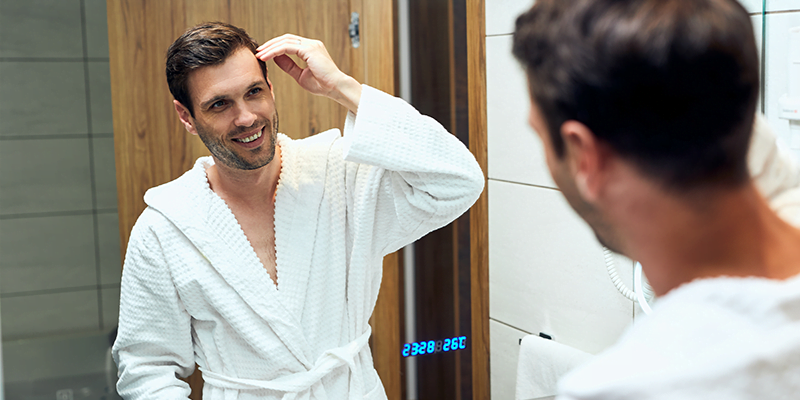
How to Choose the Right Vitamin for Your Hair?
Identify Your Deficiencies
Steps to Take: Before starting any supplement, it’s crucial to identify any vitamin deficiencies you may have. A simple blood test, conducted by your healthcare provider, can help determine if you are lacking in specific vitamins such as Vitamin D, B-vitamins, or iron. Identifying these deficiencies allows for a more targeted and effective supplementation plan, ensuring you address the root cause of your hair issues rather than just the symptoms.
Consult with a Healthcare Provider
Steps to Take: Consulting with a healthcare provider or a dermatologist can provide personalized advice based on your individual needs. These professionals can interpret your blood test results, recommend appropriate supplements, and advise on the correct dosages. They can also identify any underlying health conditions that might be contributing to hair loss or poor hair health, providing a comprehensive approach to treatment.
Read Labels Carefully
Steps to Take: When choosing a supplement, it’s essential to read labels carefully to ensure you are getting the correct dosages of each vitamin. Look for products that clearly list the amounts of active ingredients and check for the presence of unnecessary fillers or additives that might not be beneficial. Ensure that the supplement contains the necessary vitamins for hair health, such as Biotin, Vitamin D, and Vitamin E, in appropriate amounts to avoid overdosing.
Look for Reputable Brands
Steps to Take: Choose supplements from reputable brands that follow good manufacturing practices (GMP) and have positive customer reviews. Reputable brands are more likely to produce high-quality products that are tested for purity and potency. Research brands online, read reviews, and consider recommendations from healthcare providers to find trustworthy products that will provide the best results for your hair health.
Real Benefits of Hair Growth Vitamins
Improved Hair Strength and Thickness
Benefits: Vitamins such as Biotin, Vitamin C, and Vitamin E contribute to stronger hair by enhancing the production of keratin, a key structural protein in hair. Biotin supports keratin infrastructure, while Vitamin C helps in collagen production, which is crucial for hair strength. Vitamin E provides antioxidant protection, preventing damage that can weaken hair. Regular intake of these vitamins results in thicker, more resilient hair that is less prone to breakage.
Enhanced Scalp Health
Benefits: Vitamins A and E support scalp health by maintaining moisture and reducing oxidative stress. Vitamin A helps in the production of sebum, an oily substance that moisturizes the scalp and prevents dryness. Vitamin E improves blood circulation and has anti-inflammatory properties, which can reduce scalp irritation and support a healthy environment for hair growth. A well-moisturized and healthy scalp is essential for robust hair growth.
Reduced Hair Loss
Benefits: Adequate intake of vitamins can reduce hair shedding and prevent conditions like alopecia. Vitamins such as Vitamin D play a crucial role in hair follicle cycling, ensuring that hair follicles go through their growth phases properly. A deficiency in Vitamin D has been linked to hair loss, so maintaining sufficient levels can help prevent excessive hair shedding and conditions like alopecia.
Faster Hair Growth
Benefits: Vitamins support the metabolic processes involved in hair growth, leading to faster and healthier hair development. B-vitamins, in particular, are vital for cell reproduction and tissue growth. They help in creating red blood cells, which carry oxygen and nutrients to the scalp and hair follicles, promoting faster and more robust hair growth. Consistent intake of these vitamins can lead to noticeable improvements in hair length and thickness over time.
Better Overall Health
Benefits: Taking vitamins not only improves hair health but also contributes to overall well-being. Vitamins support various bodily functions, from immune support to bone health. For instance, Vitamin C boosts the immune system, Vitamin D strengthens bones, and B-vitamins aid in energy production. By supporting these essential functions, vitamins help maintain overall health, which in turn creates a better environment for healthy hair growth.
In conclusion, incorporating the right vitamins into your diet or taking supplements can significantly enhance hair health and growth. Essential vitamins like A, B-complex, C, D, and E play pivotal roles in maintaining healthy hair. By eating a balanced diet rich in these vitamins and choosing the right supplements, you can achieve and maintain beautiful, strong, and healthy hair.
For a holistic approach to hair health, consider consulting with healthcare professionals and exploring reputable brands to ensure you are getting the best vitamins for your hair growth needs. And remember, while we hope you never need a hair transplant, if you do, Lenus Clinic is here to provide exceptional care and outstanding results.
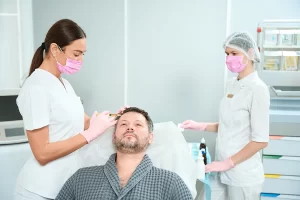
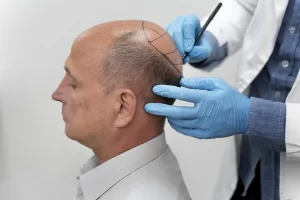
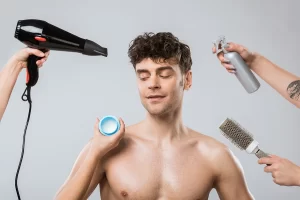
No comment yet, add your voice below!